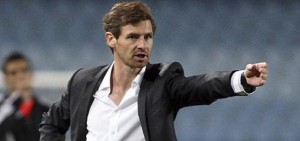
The comparisons have been as predictable as they have been widespread. In Britain, the Guardian called him “Mourinho’s apprentice“, while the Daily Mail anointed him as “Mourinho Mark II“. The Spanish press followed a similar line – El Correo named him Mourinho’s pupil and even El País joined in, headlining their profile “Mourinho’s spy“.
The potential mini-Mou in question is FC Porto boss André Villas-Boas, whose achievements in his first full season in football management have been spectacular. Last month Villas-Boas’s side secured the Portuguese title with five games in hand and this week he leads his team into the Europa League and Portuguese Cup finals.
Records have tumbled along the way – 36 games unbeaten across all competitions, most wins in a European campaign by a Portuguese club, most points in a 30-game Portuguese season, 16 consecutive wins in the Portuguese league. At just 33, Villas-Boas is the youngest ever title-winning coach in Portuguese football history.
In fairness, there is a certain basis for the comparisons. Like Mourinho, Villas-Boas never played the game at the top level and has come to prominence as a title-winning Porto boss. Bobby Robson also played a key role in both men’s early careers. Even more helpfully, Villas-Boas worked for Mourinho as a key member of his backroom staff at Porto, Chelsea and Inter Milan.
Tactically, there are also plenty of similarities. Like many of Mourinho’s teams, Villas-Boas’s Porto play a high-tempo game and line up in a 4-3-3 formation. Both managers instill a fierce team spirit and unshakeable confidence in their sides and spend a good deal of time analysing opponents and preparing specific plans for each game. Indeed, Villas-Boas’s role under Mourinho was to scout opposition teams and compile in-depth reports on their strengths and weaknesses.
However, the events of the last month or so have drawn a stark line between the on-pitch styles of the two men. Faced with the biggest challenge of his managerial career to date, Mourinho withdrew into an ultra-defensive shell, deciding that his Madrid team could not match Barcelona at football, so must try to intimidate their opponents physically. Instead of trusting the attacking prowess of Cristiano Ronaldo, Karim Benzema, Gonzalo Higuaín, Emmanuel Adebayor, Kaká, Mesut Özil and Ángel Di María, Mourinho chose destroyer tactics symbolised by his preference for Pepe’s brawn rather than Ozil’s brains in midfield.
This stifling approach failed miserably. Madrid managed only three goals in 420 minutes across four games. Despite all the brouhaha and histrionics, Barcelona easily sealed the La Liga title and were always in control of both Champions League ties. Madrid’s season, despite the Copa del Rey win and Ronaldo’s likely league top scorer accolade, is ending in a disappointing and angry whimper amid ever more ridiculous excuses and conspiracy theories.
Meanwhile, across the border, Villas-Boas’ Porto were thrilling their fans with goaltastic performances. 2-0 down in the first leg of the Portuguese cup to bitter rivals Benfica, the dragons roared back with three goals in ten second half minutes to secure a final place. Even more exciting was the Europa League semi-final first leg a few days later, when Porto fired five goals in 40 minutes to destroy a strongly favoured Villarreal team.
These scoring bursts were not atypical. Porto have already bagged over 130 goals in all competitions this season, with highlights including November’s 5-0 thrashing of last season’s champions Benfica and the 10-3 on aggregate dismantling of Spartak Moscow in the Europa League quarter finals. The monstrous front three of Hulk, Falcão and Varela have been on fire all season – Hulk is the Portuguese league’s top scorer with 23 goals, while Falcão has 17 in the Europa League alone. On Sunday, despite resting many first-teamers, the team still eased to a 4-1 win against Marítimo, completing an unbeaten league season.
Don’t call him José
Villas-Boas himself has mostly tried to play down the Mourinho comparisons. “I have more of Robson than of Mourinho,” he said at his presentation as Porto boss last summer. And when pressed again about their similarities last month – “I believe I have my own personality and the way I work is completely different, but people associate me with one of the best managers in the world, so I just have to live with that.”
If, as expected, Porto defeat fellow Portuguese SC Braga in Wednesday’s Europa League final and then despatch Vitória Guimarães in Sunday’s domestic cup final, Villas-Boas will no doubt have to fend off another round of similar journalists’ questions. Predictable speculation already has him following in his predecessor’s footsteps and leaving Porto to return to Chelsea. He has also been linked with the manager’s job at Juventus and Atletico Madrid. These reports have been waved away – “My future, as you know, is completely linked to Porto,” he said just last week.
Which makes sense. Villas-Boas should be in no rush to leave, especially with the challenge of taking Porto through next season’s Champions League to come. If he can further emulate Mourinho, by bringing the biggest European prize of all to the Estádio do Dragão, a more spectacular opportunity might just open up. Then we might see the protegé skip a few rungs of the ladder and jump right into his former boss’ seat at the Santiago Bernabéu…
Leave a Reply
You must be logged in to post a comment.